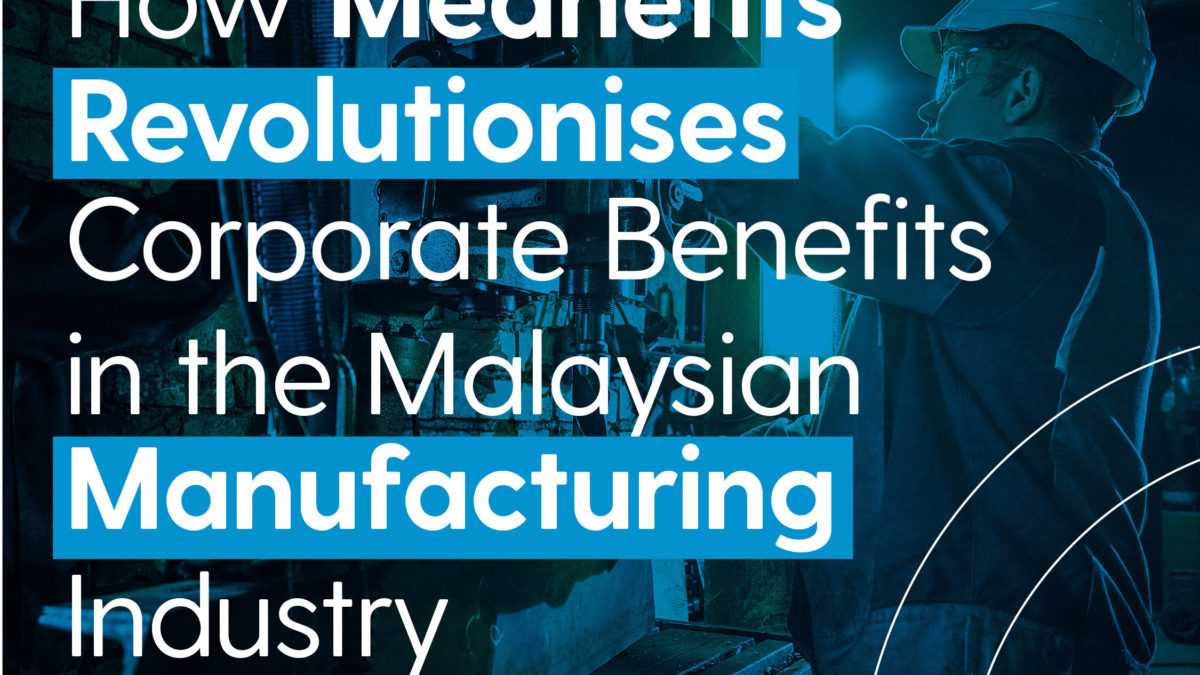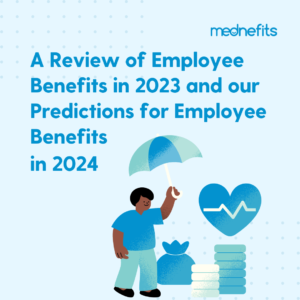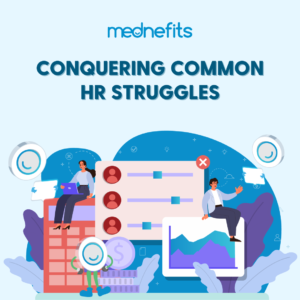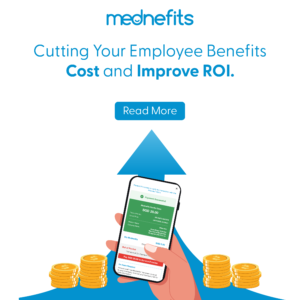
Human Inc: Using employee benefit to remain attractive to the younger talent force
August 5, 2023
Streamlining employee benefits in the hospitality and retail Industry in Malaysia
December 15, 2023Revolutionising corporate benefits in the Malaysian manufacturing
Employee Benefits
Revolutionising corporate benefits in the Malaysian manufacturing industry: How Mednefits is solving key challenges
November 17, 2023
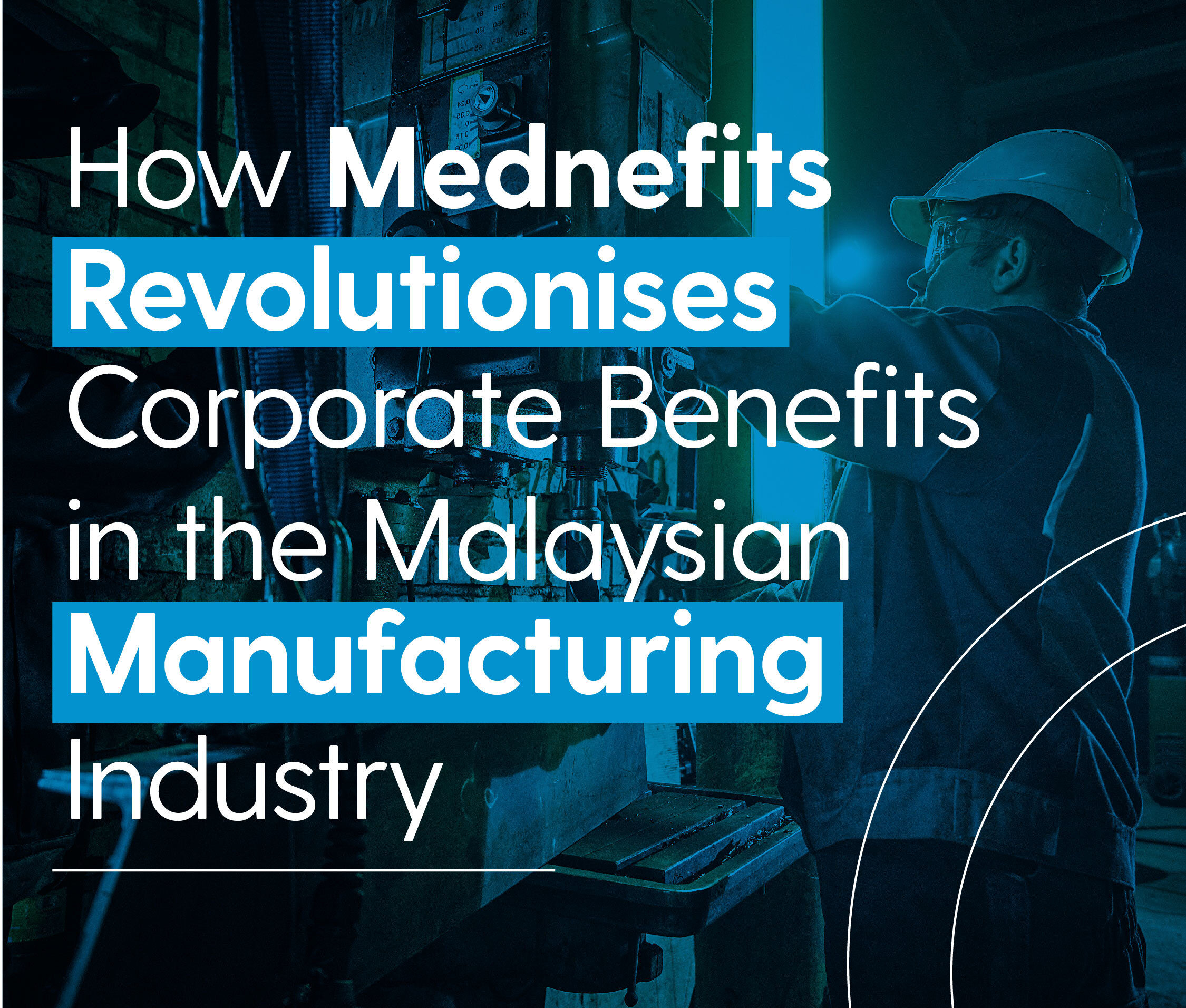
The Malaysian manufacturing industry has long been a key contributor to the nation’s economic growth and development. However, according to the Department of Statistics Malaysia (DOSM), the manufacturing sector is currently witnessing a decline in its sales value by 4% in June 2023.
Being a nation that heavily relies on trade, with export-oriented industries accounting for 74% of the total sales value in Malaysia, it is concerning to know that export-oriented industries slid by 7.4% in June 2023. Domestic-oriented manufacturing industries, however, are cushioning the decline in sales value driven by the strong growth of 10.5% in sales value within the motor vehicles Malaysian manufacturing industry.
Nonetheless, the industry observed a 2.1% growth. in employment from June 2022 to June 2023, with 2.35 million employees within the manufacturing industry. The salaries and wages received have also increased by 3% within the same period. However, the weakening of the industry has also resulted in organisations being more cautious when it comes to financial allocation.
As the industry continues to cement its position as one of the key contributors to Malaysia’s economy, companies looking to strive and continue to attract top talent to maintain their competitive edge while also considering the cost-effectiveness of doing so should look for a more innovative approach that redefines traditional approaches that are cost-ineffective and lack flexibility.
A closer look into employee retention in Malaysia's manufacturing industry
Employee retention has always been a concern within the manufacturing industry. In 2019, the Malaysian manufacturing industry witnessed the highest turnover rate of 24%. A study conducted in Perak among more than 228 respondents found that total rewards, which include employee benefits and compensation received by the organisation, boosted employee retention. In Selangor, good HR practices such as an organisation's internal practices and efficient planning were also highly valued when it comes to increasing employee retention. Lastly, boosting employees’ commitment to the company could also decrease the turnover rate, as observed in Penang.
Unsurprisingly, it all seemed to narrow it back to how HR practices such as providing employee benefits are the key to boosting employee loyalty and commitment to the company driving employee retention in Malaysia. It is clear that more has to be done within the industry to boost employee retention.
An attractive salary is no longer enough to retain and attract top talent in Malaysia
In today’s employee-first environment, companies in Malaysia are facing a new set of challenges when it comes to attracting and retaining top talent. Traditionally, a high salary was considered enough to entice highly skilled and experienced individuals to join a company and ensure employees remain loyal to the company. However, with changing attitudes towards work and 70% of Malaysians. prioritising work-life balance, it is becoming increasingly clear that an attractive salary is no longer the only factor that motivates employees. Rather, 74% of Malaysian respondents, consider both attractive salary and employee benefits as the most important employee value proposition.
This is where Mednefits developed a platform that revolutionises the way corporate benefits are managed and delivered in the Malaysian manufacturing industry. With its user-friendly and customisable platform, Mednefits aims to solve the key challenges faced by companies in providing attractive and competitive packages to their employees while ensuring the cost-effectiveness of doing so.
Three main challenges faced by the manufacturing sector in Malaysia
With the volatile economic landscape and the evolving employee expectations, the manufacturing industry is facing numerous challenges when providing employee benefits to attract, retain and engage talent. With limited resources, a high turnover rate, challenges in providing personalised benefits and more, effectively providing employee benefits pose a huge challenge for HR departments within the Malaysian manufacturing industry.
- Possibility of overconsumption
- Problem
One of the major concerns that arise with providing employees with unlimited access to medical services is the potential for overconsumption. When individuals are given the freedom to seek medical attention without any financial constraints, there is a risk that they may utilise healthcare services excessively, leading to higher costs for the employer. This issue is particularly relevant in Malaysia where healthcare costs continue to rise, making it crucial for organisations to carefully consider the implications of offering unlimited access to medical services to their employees. Overconsumption of medical services can have a significant impact on the overall healthcare expenditure of an organisation. Employees may be more inclined to seek medical attention for minor ailments or even engage in unnecessary medical tests and procedures simply because they have unlimited access, leading to MC abuse. This not only strains the healthcare system, but also amplifies the financial burden on employers, who may have to bear the increased costs of healthcare premiums or contribute more towards employee healthcare expenses.
- Mednefits Solution
It is hence essential for organisations to implement measures that strike a balance between providing employees with necessary healthcare access and ensuring responsible utilisation. The Mednefits platform has tools for an organisation to implement various caps, including scheme caps, category caps, monthly caps, and caps per visit. These caps help curb overconsumption while still ensuring access to necessary healthcare services.
- Lack of transparency
- Problem
An area that often causes confusion and frustration among employees is the lack of clarity surrounding medical expenses and benefits. While employees may offer a range of health insurance plans and employee benefits packages, there is often a lack of transparency when it comes to understanding the intricacies of medical billing, panel diagnosis, entitlement balance amount, and movements of various employees' entitlements throughout an employee's lifecycle in the company. The ambiguity can lead to disputes between employees and the HR department, resulting in a sense of discontentment and frustration within the workforce.
- Mednefits Solution
The Mednefits platform seamlessly integrates HR departments and employees, facilitating comprehensive management of entitlements from start to finish. Employees can easily view and track remaining entitlement balances, allowing them to make informed decisions and effectively plan employee benefits. While HR departments are provided with real-time updates on employee account statuses, ensuring that HR departments have accurate and up-to-date information at their fingertips.
- High worker turnover rate
- Problem
The high turnover rate experienced in the manufacturing industry poses a significant administrative challenge when it comes to managing employee benefits. This issue has become increasingly pressing as traditional systems have proven to be slow and cumbersome in responding to the dynamic changes within the workforce. As a result, companies in the manufacturing sector are now seeking innovative solutions to streamline benefit management and effectively address the needs of their employees. One of the primary obstacles faced by employers in the manufacturing industry is the time-consuming process of enrolling and disenrolling employees from benefit programs. With a constantly shifting workforce, manually updating employee records and ensuring accurate coverage can be a daunting task. Moreover, traditional systems often lack the flexibility required to accommodate sudden changes, such as new hires, terminations, or adjustments to employee status. This not only leads to delays in providing benefits but also increases the risk of errors, which can have negative consequences for both employees and employers.
- Mednefits Solution
The platform provides HR personnel with the ability to directly or in advance remove an employee from the system, and immediately pro-rate the employee’s entitlement to prevent any further spending or possibility of overspend. This functionality not only saves time and effort but also ensures a smooth transition when employees leave the company. By allowing HR to remove employees from the system easily, Mednefits eliminates the need for manual data entry or complex paperwork, reducing administrative overhead and minimising the chances of errors. Additionally, Mednefits offers a unique solution for employees who have prepaid cards with unused balance credits. Rather than letting these credits go to waste, Mednefits allows for the transfer of these credits to new employees. This feature not only ensures that the company's investment in employee benefits is maximised but also provides a seamless experience for both departing and incoming employees. By transferring unused credits, companies can demonstrate their commitment to employee well-being and satisfaction, fostering a positive work culture and enhancing employee retention.
In a nutshell
With manufacturing facing a decline in sales value and unique workforce challenges, Mednefits offers a game-changing yet cost-effective solution that effectively addresses these challenges. Furthermore, the platform offers organisations the flexibility to adapt benefits to the varying needs of contracted, permanent and C-suite executives, making it an ideal choice for the manufacturing sector.
Learn how Mednefits can tailor the implementation of employee benefits to your manufacturing company’s specific needs by scheduling a demo today! In a fast-paced industry, staying competitive is key. Mednefits can help you stand out by offering cost-effective and flexible employee benefits solutions.
About Mednefits:
Mednefits helps businesses take care of their employees with its automated, affordable, and accessible employee benefits platform.
Request to join Mednefits for free to help process and track claims in real-time, while controlling costs.
